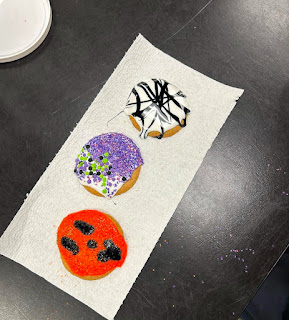In the new digital age, where parenting a child consists of plopping them in front of the TV for the day so that they can do as they please, television programs for kids have become numerous. These shows are closely monitored to ensure that no child becomes poisoned by anything similar to reality, making sure the world appears saccharine to them throughout their entire lives by creating cheesy songs and catchphrases.
Unlike Mr. Roger’s Neighborhood, where the children were treated as equals by a fatherly figure and taught actual lessons, modern children’s shows have become increasingly uncanny. Thomas the Tank Engine, a popular show in the late ‘90s that this writer watched, is straight up the uncanny valley: trains with faces stuck in almost human expressions, a monotonous narrator, and voice-acting which make the trains sound alive, brings an unsettling atmosphere to the show when viewed through the eyes of an adult. The trains’ terror on their inhuman face is staggeringly creepy.
Doug is a completely different issue with more adult fears. The main character, Doug, is a fifth grade student with a wildly active imagination. To a child, this seems wonderful, a show that supports the vivid dreams a child has both awake and asleep. The show still has some sinister undertones. Doug ends up experiencing one of his so-called dreams riding his bike in the midst of thick afternoon traffic practically hallucinating he is somewhere else. This show puts a child in dangerous situations where he can severely injure himself in the fits of his imagination, and then supports other children do the same.
Educational shows are also widely unsuccessful. Senior Evan Murray said, “I hate Dora the Explorer. She teaches children to be timid, and bad at teaching Spanish.”
These backwards illogical children’s shows are endless. Sesame Street will gently tell children that monsters do not, in fact, live under a child’s bed, hinting even that they don’t exist; yet it does so by means of Elmo, who is actually a talking monster. These children’s shows promote the child to live in surreal worlds where reality is illogical or nonexistent, creating adults oblivious to the natural order of the world.
Junior Ashwin Ramakrishnan doesn’t like children’s shows. He said it’s because they “teach children to rely on the speaker.”
The uncanny is slowly creeping into the lives of children, and injecting logical fallacies while supporting odd or dangerous behavior. The time has come again where children’s shows must once again be about coping with the world, not about talking monsters or dithering, idiotic, anthropomorphic animals.























